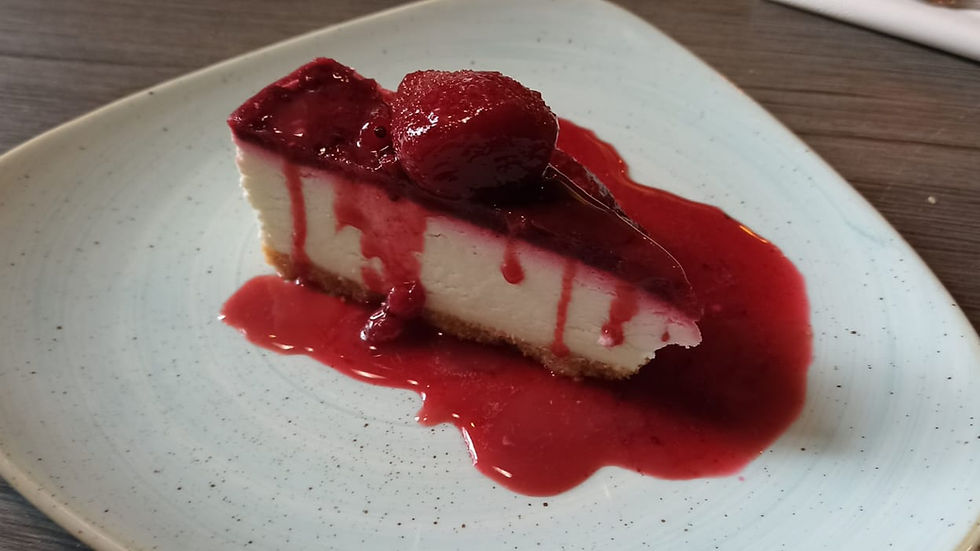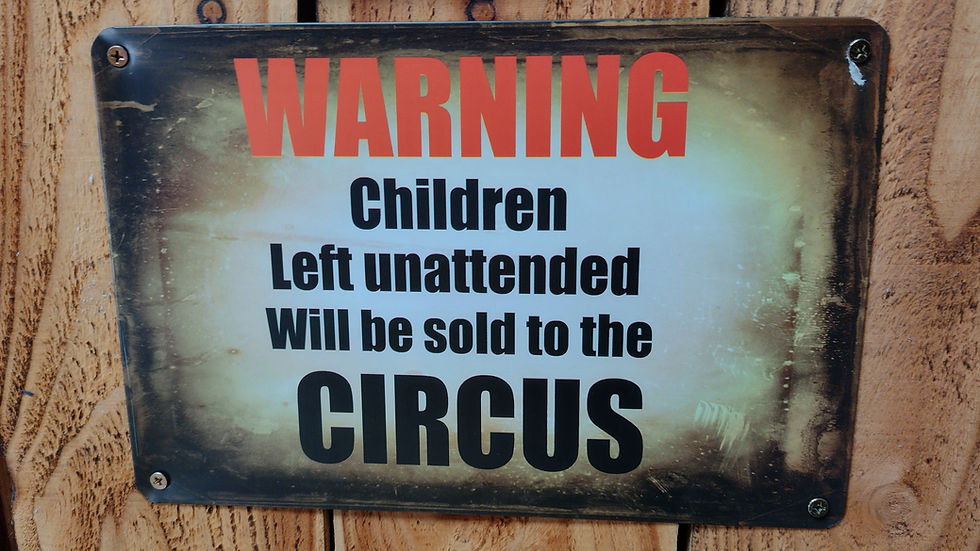Yes, Your Voice Matters (Even When It Says “Kindly Shove It!”)
- Rebel Jones

- Oct 12, 2025
- 4 min read
Updated: Oct 14, 2025
Somewhere along the way, many of us were trained to be polite to the point of self-destruction.
Sad but true.

We smile when we’re uncomfortable.
Nod when we disagree.
Say thank you when someone’s just insulted our parenting, our life choices, or our sanity.
We’re taught to prioritise everyone else’s comfort, even when it completely bulldozes our own....
And for years, I did exactly that. I swallowed my opinions like vitamin tablets I didn’t want but assumed were 'good for me'.
Spoiler: they weren’t.
Then parenting happened. Specifically, parenting a neurodivergent child happened. And suddenly, everyone from the woman at the checkout to the bloke who once fixed our boiler became an expert on my son.
“You just need to be stricter with discipline.”
Right, because nothing soothes a sensory meltdown like a good old-fashioned power trip. Shall I get my Victorian parenting manual out?
“Maybe you should try this therapy I read about.”
Brilliant. While we’re trading miracle cures, I’ve got this amazing seaweed smoothie that cures unsolicited advice. Want the recipe?
And my personal favourite... “Is it because his Dad isn’t around?”
Oh absolutely. Neurodevelopmental conditions are well known for being emotionally offended by family structures. Autism took one look at our situation and went, “Yep, moving in.”
(Those gems are straight from my book Raising an Emotionally Charged Ostrich, in Chapter 14 - He’s a Limited Edition. Still one of my favourite pieces, mainly because writing it was cheaper than therapy!)
But here’s the thing. I used to laugh off those comments in real life. I’d smile awkwardly. Change the subject. Tell myself they meant well. Because I thought being 'nice' was more important than being honest.
Turns out, being 'nice' when you’re dying a little inside isn’t kindness.
It’s self-neglect with a polite smile.
And, talking from experience, you can only suppress your voice for so long before it starts screaming from the inside. That’s where the exhaustion, resentment and 3am fridge rants come from. (Highly therapeutic, but not ideal when you’ve already eaten the emergency cheesecake!)
It took me years to realise that boundaries aren’t rude. They’re oxygen. Yup, saying “no” doesn’t make you difficult, it makes you real. And occasionally, telling someone to shove it is the most emotionally intelligent thing you can do.
Sometimes it sounds gentle:
"Thanks, but we’re fine, actually.”
Sometimes it sounds firm:
“I appreciate your concern, but I know my child.”
And sometimes, it sounds like,
“Kindly take your advice and wedge it somewhere between your Spanx and your sense of superiority. Bit of a squeeze, but I’ve got faith in you.”
All are valid. Even the last one.
Now, admittedly, when I first started speaking up, I overcompensated somewhat. Years of silence came out like emotional confetti cannons - messy and loud and occasionally aimed at the wrong target.
But that’s OK. Finding your voice is clumsy at first. You’ll say too much, or too little. You’ll replay conversations in the shower like a courtroom drama, thinking, "I should have said THAT instead."
But the magic actually happens when you stop performing and start existing as yourself, without the pre-approved filter. When your words match your feelings, your body relaxes. Conversations stop being battles and start being boundaries in motion.
And honestly? It’s addictive.
Once you start expressing yourself, you notice how much calmer life becomes. You attract people who get it. You repel those who don’t. You save your energy for things that actually matter, like making sure your kid gets the right support, or finding the one brand of shoe they’ll actually tolerate.
And seeing you. Not just looking at, but actually seeing you - the parent in the supermarket with your child lying on the floor because the self-checkout voice said "unexpected item in bagging area".
You feel the stares.
You hear the whispers.
And you keep your cool, even though inside, you’re a cocktail of rage, sadness and sarcastic one-liners you’ll never say out loud.
I wrote He’s a Limited Edition for you.
For the parents who are tired of being polite while navigating the world’s weird mix of judgement and cluelessness... For the people who want to scream, “He’s not broken, he’s brilliant, now kindly mind your own trolley,” but settle for a tight smile and a deep breath.
You’re allowed to speak up.
You’re allowed to defend your child without guilt.
You’re allowed to tell people to leave your parenting, and your peace, alone.
Because your voice matters.
And it’s not just a parenting thing. Your voice matters when you say you’re overwhelmed at work. It matters when you say no to plans because your brain’s already at capacity. It matters when you don’t have the energy to explain yourself for the tenth time this week.
Yes, we live in a world that rewards performance, productivity, politeness and pretending everything’s fine. But being 'fine'? It's overrated. I’d rather be authentic and occasionally chaotic than quietly miserable and easy to deal with.
Now, a word of warning - if you’ve spent years being agreeable, speaking out will feel strange at first. So start small.
Pause before you answer.
Practise one-liners.
Sometimes a simple “That doesn’t work for us” is all you need.
Use humour as armour.
Sarcasm, when used responsibly (OK, it's always irresponsibly in my case), can deflect nonsense like a charm.
And every time you do this, you build a world that’s a little less fake and a lot more human. And maybe that’s the real revolution. Not yelling louder, but daring to speak up when silence is expected.
So go on.
Say the thing.
Protect your peace.
Give that speech.
Because your voice matters.
It always matters.
P.S. If this one hit a nerve, send it to a fellow parent who needs reminding that their voice matters too.
“Be yourself; everyone else is already taken.”
Oscar Wilde


